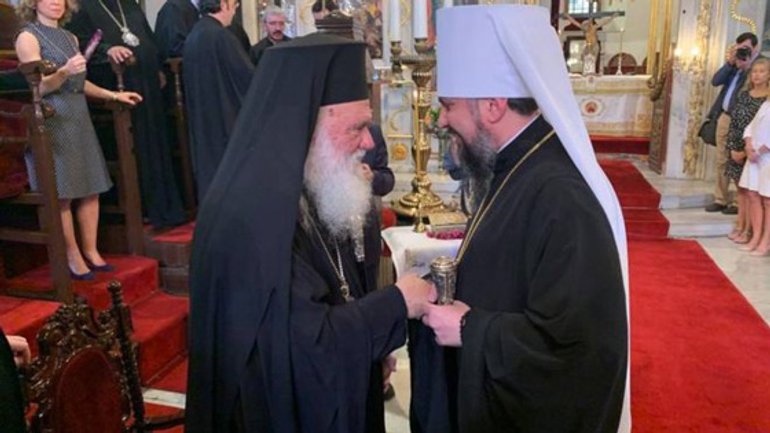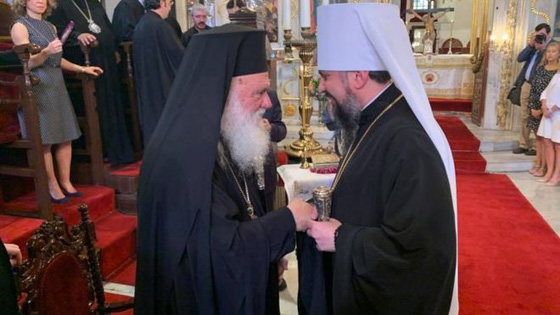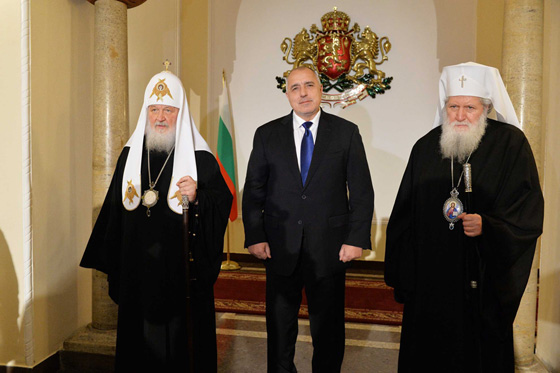Recognition by Greek Church and "domino effect"

A few days ago, the Church media were glued to the monitors, waiting for the long-awaited decision of the Synod of the Greek Church to appear. It concerned the recognition of the Orthodox Church of Ukraine. Although ten days ago, no one was particularly waiting for crucial decisions at the August session. Everyone is waiting for October — it is then that the Synod of the Hierarchy (Council of Bishops in our terminology) will take place in accordance with the Charter of the Orthodox Church of Greece. The meeting of all the bishops, and they are now more than 140 in the Church of Greece, is still a more presentable event than the usual Synod of 12 Metropolitans. It is the Synod of Hierarchy, as a more representative body, that must decide on recognition of the OCU.
What has actually happened?
However, in just a week the information began to appear that the issue of Ukraine may be considered at the end of August. Indeed, the Synod heard the report of the two commissions that studied the Ukrainian Church question. They gave positive feedback, in particular, having confirmed the canonical right of the Ecumenical Patriarchate to grant autocephaly, as well as the privilege of the Primate of the Church of Greece to finally resolve this issue.
The fact is that the recognition of the OCU by the Church of Greece means entering into official relations and, above all, joint communion. It was to resolve these issues that the Synod recognized the Primate's privilege to monitor such issues.
At the same time, the Archbishop of Athens and all Greece, realizing what vehement pressure and information campaign he will be subjected to by the Moscow Patriarchate with the recognition of the OCU, decided to secure support of all the bishops of his Church. Roughly speaking, he just wants not personal, but collective responsibility to make a decision and at least partially reduce the share of dirt from Russia to his address.
It is the Synod of the Hierarchy that should draw the line under the question of official recognition of the OCU by Athens, moreover, that in fact, precedents of the concelebration of bishops of the OCU and the Greek Church have already taken place. So, de facto, one can already speak about a certain recognition. It remains to formalize it. It was for this purpose that the commissions were heard and the decision of the Synod was elaborated.
The domino effect?
It has long been noted in the expert circles that the process of recognition is hampered by the fact that no Church wants to be the first. The reason is banal - they are afraid of Moscow. Some are afraid of the disclosure of compromising material, others – that the financial flows may be shut off, and some are afraid for their own life.
It is worth noting that there is no reason to talk about the “slowness” of recognition of the OCU. After all, the Church is a rather conservative institution, and time flows somewhat differently therein. For example, the Moscow Patriarchate had waited 4 years until it was recognized by other Patriarchates. After all, the first Letter of approval of the Patriarchy in Moscow was signed by the Patriarch of Constantinople in 1589, and only in 1593 it was recognized by Alexandria, Antioch and Jerusalem.
Now in the Orthodox world already several Autocephalous Churches maintain rather friendly attitude to Ukraine and are ready to accept OCU in the short term.
Cyprus
In addition to the Church of Greece, the Church of Cyprus is quite optimistic in our respect. It had only one question concerning the ordinations performed by the representatives of the OCU. In response, the Ecumenical Patriarch sent them a historical and canonical study on the recognition of the ordinations accomplished in the schism, subject to the presence of the Apostolic succession. The translation of this text is available at Cerkvarium. As for the Apostolic succession, an analytical material on this has recently been published in this respect. Moreover, Archbishop Chrysostomos III of Cyprus earlier this year undertook the mission of reconciliation and overcoming the schism in the Orthodox world.
Romania
There is also considerable optimism on the part of the Romanian Church. Bucharest has no objections to the ordination or other canonical issues, they are only interested in the fate of Romanian-speaking parishes in Bukovyna. The Synod of the OCU formed within Ukraine the Romanian Orthodox Vicariate, which is directly subordinate to the Primate, Metropolitan Epifaniy. The same structure operates in Romania for Ukrainians. The Vicariate is set up for the ethnic minority to preserve their cultural and ethnic traditions (calendar, language of worship and the like). In fact, this was Bucharest's only condition regarding recognition. The OCU has fulfilled it and now we can expect recognition.

Bulgaria
The Bulgarian Patriarchate underwent the internal evolution and significantly drifted away from the openly Pro-Russian camp in 2016 (they then ignored the Pan-Orthodox Council on the island of Crete) to the pro-Ukrainian Church in 2018. The last straw was the scandalous visit of Patriarch Kirill to Bulgaria in March last year, where he taught Patriarch Neophyte and the country's top political leadership “a lesson of patriotosm.”
Georgia
The ancient Georgian Church has also demonstrated the exit from the pro-Russian camp over the past three years. Now, the strong pro-Ukrainian statements of its hierarchs, as well as criticism of the Moscow Patriarchate can be heard increasingly often. Russians blackmailed Georgians that in case of recognition of Ukrainian autocephaly, Moscow will recognize the autocephaly of Abkhazia. However, it seems that Tbilisi is no longer affected by these threats. At least they are not afraid to openly criticize the Russians.
***
The Church of Greece came close to formalizing legal relations with the OCU. The couple has already tried to live together, household claims have not arisen, and now, finally, they are preparing to get a stamp in the passport. With the establishment of diplomatic relations with Athens, the “canonical curtain” for Kyiv will finally fall down and the doors for contacts with the rest of the Orthodox world will open. “Communist Orthodoxy” will share the fate of the socialist camp and finally cease to nightmare the faithful... at least in Eastern Europe.









